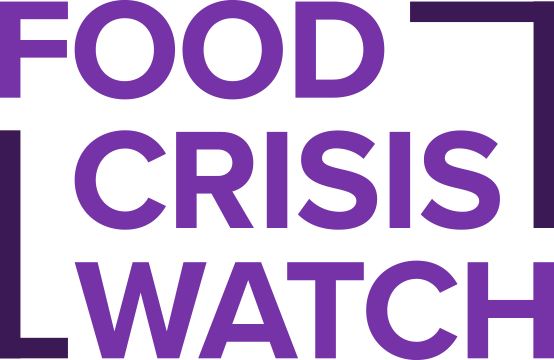Kicking Off the Google.org Project: First Workshop on Predicting Food Crisis Risks

The International Food Policy Research Institute (IFPRI) convened its first workshop for the Google.org–funded project “Prediction of Food Crisis Risks” on November 3, 2025. The hybrid meeting, moderated by Dr. Betina Dimaranan, brought together researchers from across IFPRI and partner institutions to share early findings, discuss technical progress, and chart the project’s strategic direction.
Opening the session, Dr. Yanyan Liu, Senior Research Fellow at IFPRI and Principal Investigator of the project, welcomed participants and outlined the vision driving this new initiative. The project aims to harness artificial intelligence, satellite data, and economic modeling to forecast food insecurity and identify crisis risks before they escalate. Supported by Google.org, the effort reflects a growing global commitment to use AI for public good—particularly to strengthen early warning and anticipatory action systems in the face of climate shocks, market disruptions, and conflict.
Showcasing Progress Across Research Areas
The workshop featured updates from researchers leading the five interconnected components of the project.
Mr. Weilun Shi presented recent advances in modeling global food insecurity using IPC data and machine learning. His team’s work continues to show strong predictive accuracy for identifying severe food insecurity (IPC Phase 3 and above), offering a valuable lead time for crisis response.
Dr. Joe Guo shared progress from the project’s country-focused study in Myanmar, which applies high-frequency food security data to improve early warning systems at local levels. His presentation emphasized how integrating household and nutrition data can increase both the precision and timeliness of predictions.
Dr. Fousseini Traoré reported on the development of food price forecasting tools that use market trends as early indicators of food crises. His analysis of markets across the Sahel and West Africa highlights how price signals can help detect emerging shocks well before they appear in traditional assessments.
Dr. Soonho Kim and Mrs. Sediqa Zaki introduced the project’s prototype AI-powered Food Security Dashboard, which visualizes model outputs, trends, and forecasts across countries and regions based on the responsible AI principles. Designed for policymakers and analysts, the dashboard will make complex data more accessible, interactive, and actionable for crisis monitoring and response.
In the final technical presentation, Dr. Liu shared updates on research exploring the causal drivers of food insecurity and the integration of ecosystem and economic models through AI and satellite data. This work aims to connect climate, production, and economic indicators to improve the understanding of how environmental and socioeconomic stressors jointly shape food security outcomes.
Guiding the Path Forward
Following the presentations, Dr. Ruth Hill, Director of IFPRI’s Markets, Trade, and Institutions Division, and Dr. Rob Vos, Senior Research Fellow, provided reflections and strategic guidance for the project’s next phase.
The workshop concluded with an open discussion on next steps, including data harmonization, model validation, and opportunities for pilot applications with national and regional partners. Dr. Liu noted that the team’s progress represents “the foundation for a new generation of early warning tools that bridge data and decision.”
As the project moves into 2026, IFPRI and its collaborators will refine the AI models, expand the dashboard’s coverage, and disseminate findings through open-access publications and interactive tools. With support from Google.org, the Prediction of Food Crisis Risks project is charting a new path for anticipating hunger—where foresight, not hindsight, drives global food security action.
